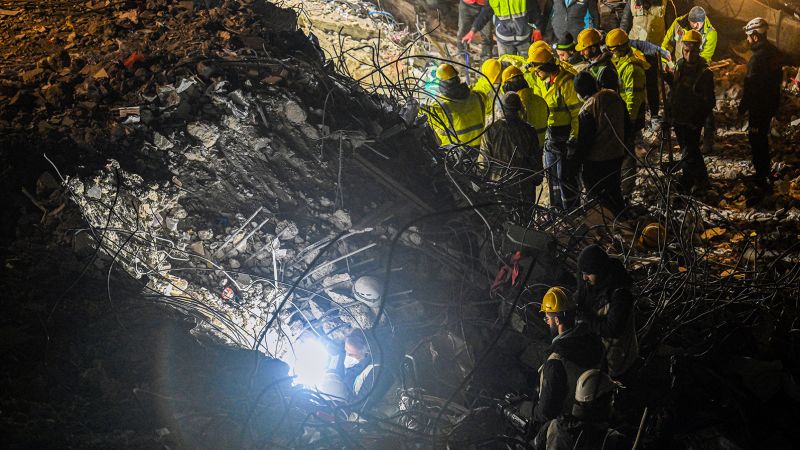CNN
—
Rescue teams in southern Turkey say they are still hearing voices from under the rubble more than a week after a devastating 7.8 magnitude earthquake, offering a glimmer of hope of finding more survivors.
Live images broadcast on CNN affiliate CNN Turk showed rescuers working in two areas of the Kahramanmaras region, where they were trying to save three sisters believed to be buried under the debris.
In the same region, emergency workers saved a 35-year-old woman who was believed to have been buried for around 205 hours, according to state broadcaster TRT Haber.
Two brothers – 17-year-old Muhammed Enes Yeninar and 21-year-old brother Abdulbaki Yennir – were also pulled from collapsed buildings on Tuesday, the broadcaster also reported. Further east, in the city of Adiyaman, rescuers pulled an 18-year-old boy and a man alive from the rubble, while Ukraine’s rescue team pulled a woman alive out of the rubble in the southern province of Hatay, according to CNN Turk.
Eight days after the tremor and its violent aftershocks, more than 41,200 people have been confirmed dead across Turkey and Syria, and survival stories are becoming few and far between.
UNICEF said it fears that even without verified numbers, it is “tragically clear” that the number of children killed following the quake “will continue to grow.”
James Elder, a spokesman for the United Nations children’s agency, said 4.6 million children live in the 10 Turkish provinces hit by the disaster, while in Syria, 2.5 million children have been affected.
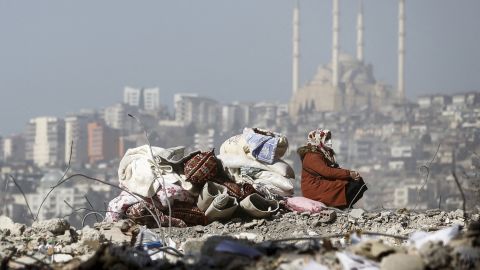
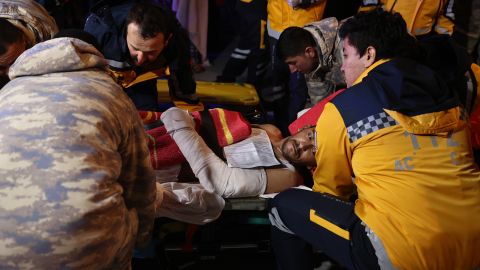
As rescue operations start to shift to recovery efforts, UN workers are racing to funnel aid to survivors in Syria through two new border crossings approved by the government in Damascus.
The United Nations welcomed Syrian President Bashar al-Assad’s decision on Monday to open “the two crossing points of Bab Al-Salam and Al Ra’ee” between Turkey and northwest Syria “for an initial period of three months to allow for the timely delivery of humanitarian aid.”
Eleven trucks with UN aid crossed into northwest Syria via the Bab Al-Salam passage on Tuesday, UN aid chief Martin Griffiths tweeted, adding that 26 more trucks passed into the region via the Bab Al-Hawa crossing.
The news came after UN Secretary-General Antonio Guterres said Tuesday the two new border crossings that will take aid inside Syria from Turkey “are open and goods are flowing.”
Guterres emphasized that human suffering from this natural disaster should not be made worse by manmade obstacles such as access, funding and supplies.
The UN is launching a $397 million humanitarian appeal for victims of the earthquake in Syria for three months and finalizing a similar appeal for survivors in Turkey, Guterres announced.
International aid has been slow to arrive in rebel-held areas in northern and northwestern Syria. The situation has been complicated by years of conflict and an already existing humanitarian crisis that has led to further difficulties for survivors who lack food, shelter and medicine as they battle freezing winter conditions.
Syrian Foreign Minister Faisal Mekdad said last week that any aid the country receives must go through the capital Damascus. But many Western nations have been reluctant to lift sanctions despite requests from Assad, as the measures were placed on his regime after it led a brutal campaign in which hundreds of thousands of civilians have been killed during the years-long civil war.
Also on Tuesday, a Saudi Arabian plane carrying 35 tons of food, medical aid and shelter landed at Aleppo International Airport, in what is the first shipment of aid from the kingdom to government-held territory since the February 6 earthquake, Syrian state media reported.
Two more planes of aid are scheduled to arrive in Syria on Wednesday and Thursday, according to Faleh al-Subei, the head of the aid department at the King Salman Humanitarian Aid and Relief Center.
Meanwhile, Turkey’s Vice President Fuat Oktay has denied reports of food and aid shortages. There were “no problems with feeding the public” and “millions of blankets are being sent to all areas,” he said on live television.
Turkey’s Foreign Ministry said more than 9,200 foreign personnel are taking part in the country’s search and rescue operations, while 100 countries have offered help so far.
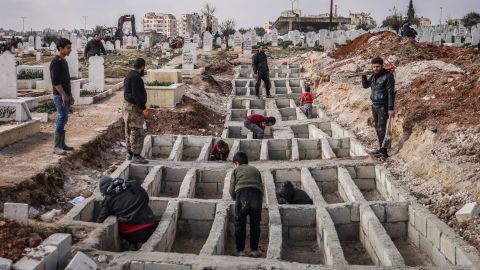
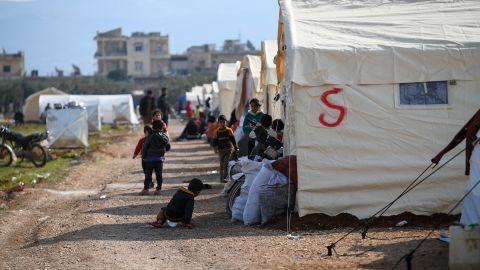
On Monday, UN aid chief Griffiths said the rescue phase of the response was “coming to a close” during a visit to the northern Syrian city of Aleppo.
“And now the humanitarian phase, the urgency of providing shelter, psychosocial care, food, schooling, and a sense of the future for these people, that’s our obligation now,” he said.
After announcing an end to their search and rescue operation last week, the “White Helmets” group, officially known as Syria Civil Defense, on Monday declared a seven-day mourning period in rebel-controlled areas in the north of the country.
The World Health Organization (WHO) stressed the need to “focus on trauma rehabilitation” when treating populations stricken by the devastating disaster.
The WHO’s Turkey Representative Batyr Berdyklychev highlighted the “growing problem” of a “traumatized population,” forecasting the need for psychological and mental health services in the affected regions.
“People only now start realizing what happened to them after this shock period,” Berdyklychev said while speaking at a media briefing from the Turkish city of Adana on Tuesday.
The WHO is negotiating with Turkish authorities to make sure quake survivors can access mental health services, Berdyklychev added, noting that many people displaced by the quake to other areas of Turkey “will also need to be reached.”
WHO Regional Director for Europe, Hans Kluge told the briefing that the “immediate priority” for the 22 emergency medical teams deployed by the WHO to Turkey is “working particularly to deal with the high number of trauma patients and catastrophic injuries.”
CORRECTION: This story has been updated to clarify where the 18-year-old boy and a man were rescued, which was in the city of Adiyaman.

